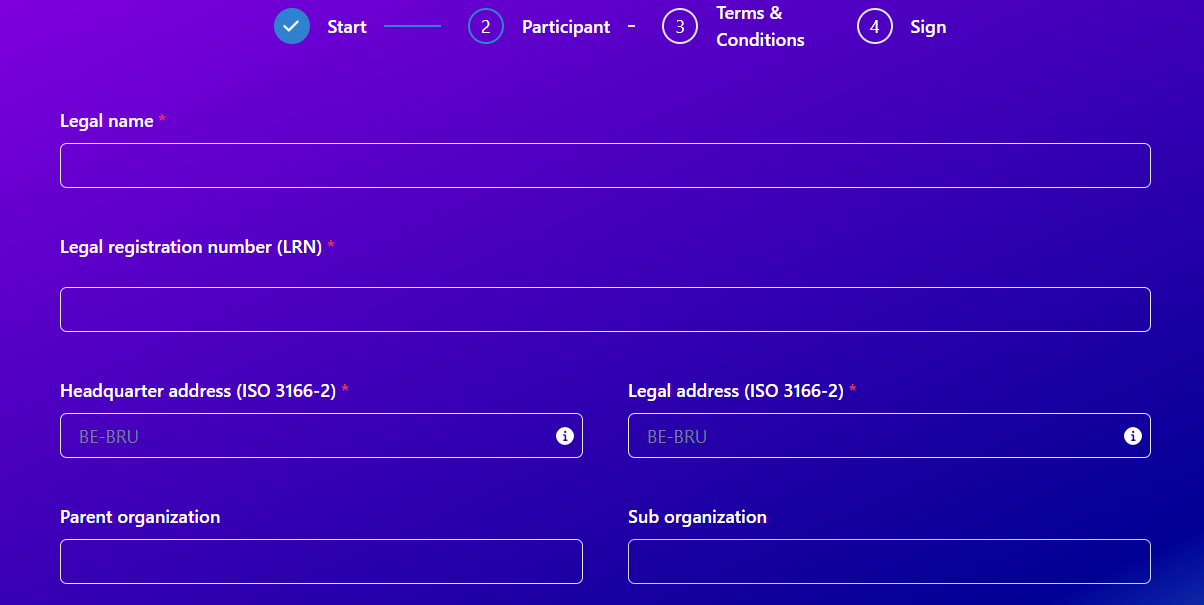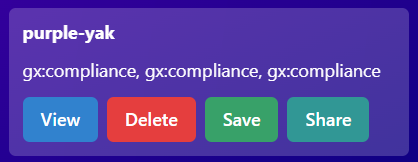3. Practical work: Tagus Compliance¶
In this guide we will mainly focus on how to use the cryptographic material and did to sign a Verifiable Credential.
Using a JWS2020 signature and fulfilling the requirements for minimum compliance on the Tagus release.
Several tools (online and offline) are available, in this guide we will use the Gaia-X wizard, a UI tools that provides
step-by-step guide and forms to create and sign Verifiable Credential from the Gaia-X ontology.
Other tools are also available, but won’t be covered in this guide.
3.1 Tagus Compliance Verifiable Credentials Payload¶
We will need to create 3 Verifiable Credentials:
- The Legal Participant VC
- The Terms & Conditions VC
- The Legal Registration Number VC
3.1.1 Using the bundled approach in the Gaia-X Wizard (Recommended)¶
First of all, we need to go to the Gaia-X Wizard, then navigate to Participant VCs in 4 steps
 .
.
And then simply following the steps, while filling all the required fields.

The wizard will then take care of calling the Gaia-X Legal registration number notary, creating and signing the Legal Participant
and Terms & Conditions.

The user can then choose to store the credentials in the provided local wallet or only the “holder” temporary storage.
3.1.2 Using the wizard as an editor and signing tool¶
The wizard can also be used with a provided private key to sign the credentials and link them to a defined DID verification method.
Note
The private key is only used in the browser and is not sent to the backend.
The wizard can also be used with some provided examples:
Then choose the option I use my own DID solution and fill the verification method and private key, and then Sign.

These steps can then be repeated for all required VCs.
3.2 Tagus Compliance Verifiable Presentation Request¶
The next step is to simply bundle the 3 previously acquired verifiable credentials into a Verifiable Presentation to be sent to the Compliance Service. The wizard have an option included to be able to choose which credential to add to the presentation, then call the compliance service.
If the response of the compliance is favourable, a new Verifiable Credential is added to the Holder Section of the wizard.
Note
A complete manual or custom implementation method is also possible, then using the Compliance Swagger documentation: Compliance v1 docs


